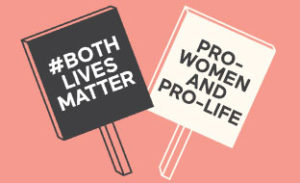2020 has been a difficult year. Covid-19 has changed everything. At the time of writing, over a million people have died worldwide, over half a million U.K business have been forced to close and more livelihoods are still at urgent risk due to the corona virus. We all want to see an end to the pandemic; we all want to spend Christmas with our families, we all want to return to normality.
There’s (hopefully) good news, a Covid-19 vaccine has been developed in record timing and the first vaccines are currently being administered all across the U.K. We are told the Covid-19 vaccine will save lives because vaccines have proved instrumental in fighting viruses in the body, helping eradicate infectious diseases like polio and have prevented an estimated 10 million deaths between 2010-2015. Yesterday, (December 8) a teary Matt Hancock announced that the vaccine rollout is, “the beginning of the end”[1], a chance for people, “to get on with their lives”.[2]
However, at the moment only 65% of people across the UK say they will take the vaccine[3] and the speedy development of the Covid-19 vaccine has raised some complex ethical issues, prompting many people to question, perhaps for the first time, how vaccines are developed.
For those who value preborn human life the development process of a Covid-19 vaccine causes concern about how to make ethical decisions about a vaccine whilst continuing to value preborn human life. Foetal cells derived from aborted foetus tissue have been and are being used in the development of some vaccines, in other vaccines these cells are being used in the testing process.
Unfortunately, some human cells have been derived from aborted foetus’. The most widely used foetal cells are WI-38 and MRC-5 that were both derived from the lungs of foetus’ aborted in the 1960’s.[4] These foetal cells were grown perpetually in a lab allowing for mass production. Several life-saving vaccines have been developed from these foetal cells including a vaccine for chicken pox, Hepatitis A, Rabies and Smallpox. This is a valid concern for those who value preborn human life as vaccines developed in this way will still benefit many individuals, it’s estimated that the WI-38 cell line has saved 10.3 million lives.[5]
There are a number of alternatives including adult stem cells, mesenchymal stems cells, found in bone marrow and umbilical cord stem cells, which are a “non-invasive and low-cost source of stem cells”[6]. These are human cells that still provide an accurate representation of the human body and can be used in vaccine development. It is important that those who value human life, from politicians who legislate to the parents who vaccinate their children, raise their voice to advocate for alternative methods of vaccine development, that aren’t dependent on cells derived from aborted foetus’.
How do we weigh issues raised by the development of the Covid-19 vaccine and the potential good that the vaccine could accomplish in saving millions of lives? This engages the utilitarian arguments of the greatest good for the greatest number – often the default thinking behind public policy decisions. So does the end justify the means? Or should this vaccine development be considered through a redemptive lens? Can/should we think about the development of the vaccine as redeeming something evil for good?
There are many ethical questions around our duty or responsibility. If the Covid-19 vaccine has been developed ethically do we have a moral duty to take the vaccine to save other’s lives? How do we ethically approach questions around complicity or social coercion around the roll-out of this vaccine? Is it justifiable for people to be only allowed entry to a country, care home or supermarket if they can show they have had the vaccine? Where does conscience come into play? Is it fair that rich Western countries have bought up millions of doses first, leaving little for other places with potentially greater need?
The speedy development of the Covid-19 vaccine has produced big questions. There is also a lot of unhelpful and inaccurate material surrounding this public conversation so if we are to make good moral and ethical decisions that value all human life, then we need to be well informed and think clearly and, choose wisely in line with our conscience and for the common good.
(The importance of this topic motivated us at Both Lives Matter and our partners at the Evangelical Alliance to host a zoom webinar with Q&A on Thursday 10 December at 11am to 12 noon. The contributing experts are from the fields of medicine, medical ethics, public policy and law. The webinar will be recorded and available after the event.
To register: https://www.eauk.org/what-we-do/events/making-ethical-decisions-webinar)
[1] https://www.theguardian.com/world/video/2020/dec/07/matt-hancock-vaccine-rollout-beginning-of-the-end-of-covid-pandemic-video.
[2] https://www.theguardian.com/politics/video/2020/dec/08/matt-hancock-brought-to-tears-on-tv-as-first-covid-vaccinations-begin-video.
[3] https://www.politicshome.com/news/article/sixtyfive-percent-of-adults-say-they-would-take-covid19-vaccine?utm_medium=email&utm_campaign=EB%20812&utm_content=EB%20812+CID_7b49f613f1b362f407ec760f86b7d29a&utm_source=Email%20newsletters&utm_term=Sixty-Five%20Percent%20of%20Adults%20Say%20They%20Would%20Take%20The%20New%20Covid-19%20Vaccine
[4] https://www.bbc.com/future/article/20201103-the-controversial-cells-that-saved-10-million-lives.
[5] https://www.bbc.com/future/article/20201103-the-controversial-cells-that-saved-10-million-lives.
[6] https://www.bioeden.com/us/news/best-sources-stem-cells-explained-cord-blood-bone-marrow-teeth/.

